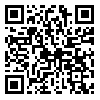Volume 6, Issue 4 (November 2019)
Avicenna J Neuro Psycho Physiology 2019, 6(4): 175-184 |
Back to browse issues page
Download citation:
BibTeX | RIS | EndNote | Medlars | ProCite | Reference Manager | RefWorks
Send citation to:



BibTeX | RIS | EndNote | Medlars | ProCite | Reference Manager | RefWorks
Send citation to:
Qanbari P, Tajeri B, Ahadi H, Jomehri F, Seyrafi M R. Comparison of the Effectiveness of Cognitive-Behavioral Therapy and Education Based on Protection Motivation in Adherence to Treatment in Women With Type 2 Diabetes. Avicenna J Neuro Psycho Physiology 2019; 6 (4) :175-184
URL: http://ajnpp.umsha.ac.ir/article-1-188-en.html
URL: http://ajnpp.umsha.ac.ir/article-1-188-en.html
1- Department of Psychology, UAE Branch, Islamic Azad University, Dubai, United Arab Emirates.
2- Department of Psychology, Islamic Azad University, Karaj Branch, Karaj, Iran. ,btajeri@yahoo.com
3- Department of Psychology, Islamic Azad University, Karaj Branch, Karaj, Iran.
4- Department of Psychology, Allameh Tabatabayi, Tehran, Iran.
2- Department of Psychology, Islamic Azad University, Karaj Branch, Karaj, Iran. ,
3- Department of Psychology, Islamic Azad University, Karaj Branch, Karaj, Iran.
4- Department of Psychology, Allameh Tabatabayi, Tehran, Iran.
Abstract: (4167 Views)
Background: Adherence to treatment is effective in preventing illness and life expectancy, and is an essential issue in chronic diseases, like diabetes.
Objectives: The present study was conducted to compare the effectiveness of cognitive-behavioral therapy (CBT) and education based on protection motivation adherence to treatment in patients with diabetes.
Materials and Methods: This quasi-experimental study with pre-test, post-test, a three-month follow-up, and the control group was conducted on all diabetic women aged 40-65 years who referred to the diabetes association of Tehran. Forty-five available patients were selected (15 in each experimental group) and assigned randomly to the experimental group 1 (CBT) and experimental group 2 (educational intervention) and the other fifteen patients were the control group and did not receive any psychotherapy. The adherence to the treatment inventory (Morisky, 2010) was administered in the pre-test, post-test, and follow-up. The therapeutic packages of CBT and educational intervention based on protection motivation were applied to the experimental groups (90 min each session) weekly. Repeated measures ANOVA and analysis of covariance were used to analyze the data by SPSS V. 22.
Results: The results showed that the effects of two methods of CBT and motivation-based education on adherence to treatment were significant in the post-test (P<0.01). Also, the effect of time on adherence to treatment scores in the follow-up period was significant (P<0.01). There was a difference between the adherence to treatment scores in the three stages of pre-test, post-test, and follow-up regardless of group (P<0.01). The effect of interaction between group and time was also significant (P<0.01).
Conclusion: It can be concluded that CBT and motivation-based education can improve adherence to treatment in patients with type 2 diabetes. CBT was more effective than motivation-based education on adherence to treatment in post-test and follow-up, and it can be used to improve adherence to treatment in patients with type II diabetes.
Objectives: The present study was conducted to compare the effectiveness of cognitive-behavioral therapy (CBT) and education based on protection motivation adherence to treatment in patients with diabetes.
Materials and Methods: This quasi-experimental study with pre-test, post-test, a three-month follow-up, and the control group was conducted on all diabetic women aged 40-65 years who referred to the diabetes association of Tehran. Forty-five available patients were selected (15 in each experimental group) and assigned randomly to the experimental group 1 (CBT) and experimental group 2 (educational intervention) and the other fifteen patients were the control group and did not receive any psychotherapy. The adherence to the treatment inventory (Morisky, 2010) was administered in the pre-test, post-test, and follow-up. The therapeutic packages of CBT and educational intervention based on protection motivation were applied to the experimental groups (90 min each session) weekly. Repeated measures ANOVA and analysis of covariance were used to analyze the data by SPSS V. 22.
Results: The results showed that the effects of two methods of CBT and motivation-based education on adherence to treatment were significant in the post-test (P<0.01). Also, the effect of time on adherence to treatment scores in the follow-up period was significant (P<0.01). There was a difference between the adherence to treatment scores in the three stages of pre-test, post-test, and follow-up regardless of group (P<0.01). The effect of interaction between group and time was also significant (P<0.01).
Conclusion: It can be concluded that CBT and motivation-based education can improve adherence to treatment in patients with type 2 diabetes. CBT was more effective than motivation-based education on adherence to treatment in post-test and follow-up, and it can be used to improve adherence to treatment in patients with type II diabetes.
Article Type: Research Article |
Subject:
Clinical Psychology
Received: 2019/03/17 | Accepted: 2019/09/10 | Published: 2019/11/1
Received: 2019/03/17 | Accepted: 2019/09/10 | Published: 2019/11/1
Send email to the article author
| Rights and permissions | |
 |
This work is licensed under a Creative Commons Attribution-NonCommercial 4.0 International License. |








